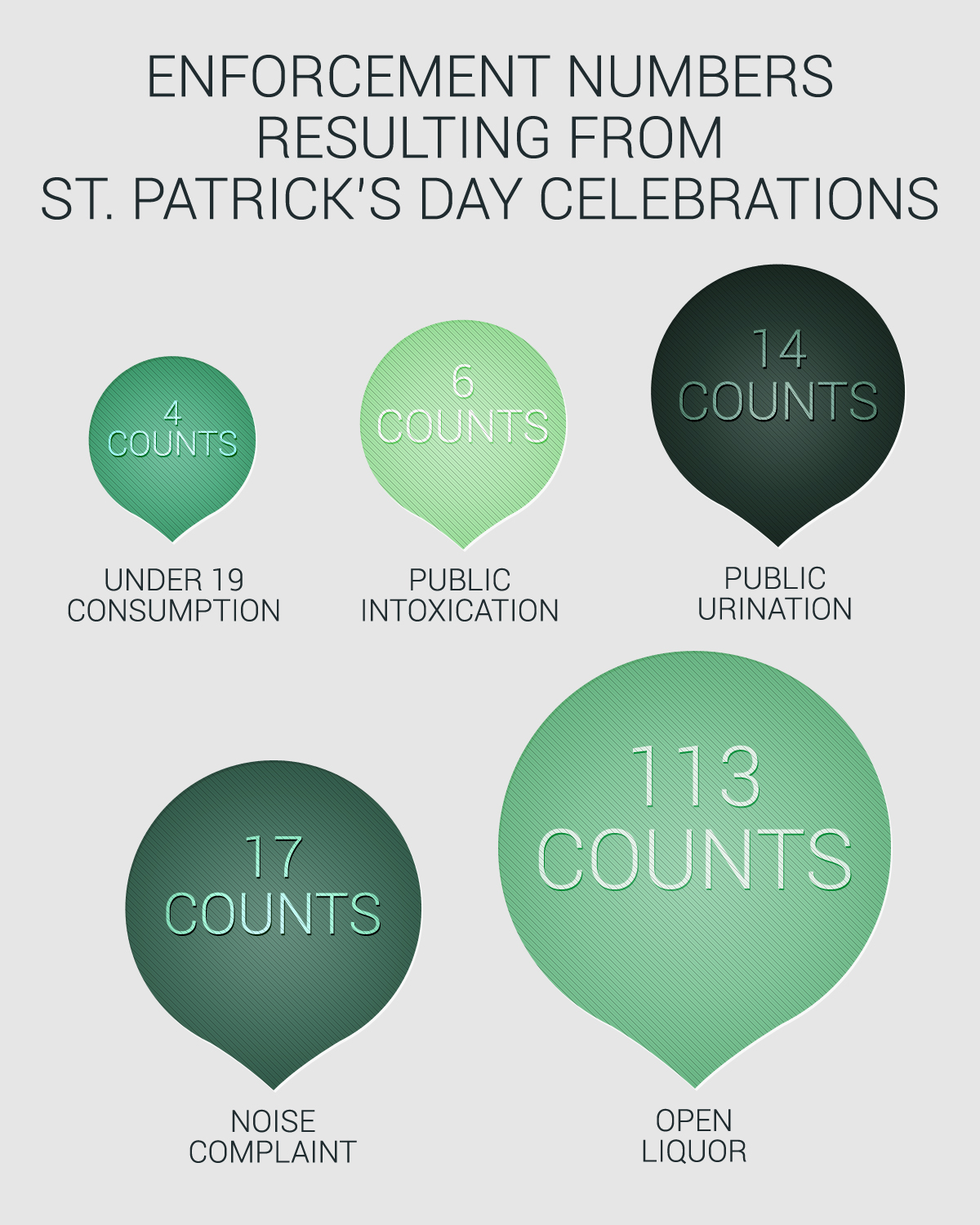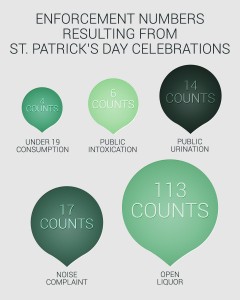Police encouraging ‘responsible’ house parties


It’s all fun and games until the police break it up.
That’s been the case for many university and college students in Kitchener-Waterloo whose parties have earned a long list of fines and tickets.
But just how common are party-related charges in the area? According to Olaf Heinzel, the public affairs coordinator for the Waterloo Regional Police Services (WRPS), tickets fluctuate. Most of the drinking-related charges have to do with celebrations such as Homecoming or St. Patrick’s Day.
“The ticket is a last resort,” he said. “It all depends on the circumstance; it’s an option that’s available to the officer, but it’s not the only option.”
Heinzel told The Cord that WRPS gave out 113 open liquor tickets during last year’s St. Patrick’s Day celebration. There were also six public intoxication tickets, four for underage drinking and 17 noise complaints.
The second most common charges laid were cases of public urination, which drew 14 charges. These charges do not include notices given out by City of Waterloo By-Law Enforcement or university police services.
Heinzel also explained that WRPS prepares in advance for major events and works closely with the municipality by-law enforcers.
“We find that having officers present helps to maintain order and civil behaviour,” Heinzel said. “A lot of times it just means a knock on the door if it’s a noisy party, telling them to turn down the noise.”
In fact, noise complaints have become a hot ticket when it comes to hosting parties in the area — a $550 fine to be exact.
However WRPS are not the ones who monitor noise complaints; it’s actually the city’s by-law enforcement.
“There are certain problematic houses of groups and you just do your best to deal with them,” said Jessalyn Broadfoot, the rental and marketing manager at Domus Student Housing, a property management company that deals exclusively with student tenants in Waterloo.
Broadfoot said that Domus deals with city by-law enforcers every week.
“Usually it’s just touching base with certain situations and there is usually a warning,” she said. “Then if conditions aren’t met or an offense is repeatedly happening that’s when there is a ticket.”
Some students who have received tickets for hosting parties don’t believe this is the case.
“We never got a warning,” said Amy Almeida, a student at Wilfrid Laurier University. “We would have turned the music off.”
Almeida and her roommates received at $550 noise complaint ticket during a keg party last year. She explained that following their fine her landlord received a letter from city by-law services and threatened to terminate their lease pending a second offense.
“Apparently the police have to contact the landlord,” Almeida said.
Broadfoot says that Domus is a little more understanding when it comes to student parties.
“Student parties are inevitable,” she admitted.
“Our first approach is not eviction or lease termination. We always try to communicate with our tenants rather just saying we’re going to end the lease.”
In order for Domus to evict a tenant, there needs to be repeat offenses and more violations of municipal by-laws or serious criminal charges.
“When they are going against by-laws, that’s grounds for when we’re looking into renewing a lease,” Broadfoot said.
However, Heinzel asserts that the best way to avoid party or drinking related fines is to act responsibly and in a respectful manner.
“[Students] are citizens of our community and we expect them to be responsible in their actions,” Heinzel said.
And according to WRPS, students are usually very cooperative when handed a ticket.
“As long as they are acting in a reasonable manner things don’t get out of control,” he said. “You’re young adults, be responsible.”

